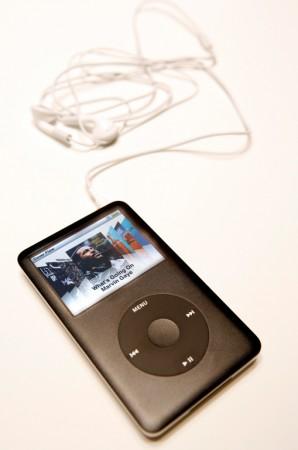
The New Year brings new products and promises for better and greater upgrades. But more often than not, it isn't easy to forget some losses too of the past year, no matter how small the product. As we near the end of 2014, which has been a great year in tech, we would like to take a walk down memory lane to highlight the few losses.
iPod Classic
Apple may have got its fans excited with new launches like iPhone 6 and Apple Watch but it sadly put an end to the legendary iPod Classic. The move stunned many when Apple retired the widely successful music player with a click-wheel in September by pulling it off the site. Apple reasoned the demise of iPod Classic with unavailability of parts and engineering a new version wasn't worth it.
Windows XP
This was one of the biggest losses of 2014. The widely popular desktop operating system was put to rest by Microsoft after 12 long years. In April, the Redmond-based software giant ended support for Windows XP and urged users to upgrade to the latest OS versions available.
Windows XP was widely popular and had a strong fan-following. Desktop users refused to upgrade to Windows Vista after several complaints about the successor's flaws and glitches. Even though Windows 7 was a refined version of Vista, XP users were devoted to the more-than-a-decade-old OS. There was wide resistance all over the world against Microsoft's decision to end support for Windows XP. But nothing could stop what was coming and the OS was finally put to rest on April 8, 2014.
MSN Messenger
Microsoft finally pulled the plug on one of the oldest messenger apps, MSN Messenger, otherwise called as Windows Live Messenger. The original plans to shut down the decade-and-a-half old service were made in 2013 but the actual shut down took place in October this year. Microsoft integrated MSN Messenger features into Skype and encouraged users to continue to use the services.
Facebook Poke App
Facebook is constantly testing out new apps and features to enhance the social networking experience on its site. Sometimes, the company also makes decisions to shut down certain apps and services that are not so popular. Facebook's not-so-popular Poke app, which was a Snapchat clone, did not garner enough attention with its ephemeral messages with a timer concept. So shutting it down for good helped Facebook focus on other core features of the site that are actually popular among users.
Facebook pulled down the Poke app from Apple App Store in May, almost two years after its debut in December 2012.
Flappy Bird
Flappy Bird was one of the few games that gained immense popularity in a short span of time. The game went viral, with players reportedly breaking their smartphones. With the extreme success came the pressure that forced Dong Nguyen, the creator of the popular mobile game, to shut down the game.
"I am sorry 'Flappy Bird' users, 22 hours from now, I will take 'Flappy Bird' down. I cannot take this anymore," Nguyen tweeted in February before officially shutting down the app.
Nokia X
Nokia X was a brave move on Microsoft's part with integration between Windows Phone and Android OS. The mixed-OS offered a great alternative but Microsoft had different plans. In July, the company's CEO Satya Nadella announced a massive change in the company's management and plans to "shift select Nokia X product designs to become Lumia products running Windows," Mashable reported.
Orkut
We all knew Orkut, once upon a time. Over time, the once-popular social networking site lost its charm as other social sites took over. Facebook, Twitter, and others were tough competition for Orkut and it remained dormant and almost non-existent for years. Orkut really made an impact in select markets like Brazil but Google decided to shut down the service in favour of developing Google+.
Orkut was officially put down by Google in September.
Macworld Magazine
Apple fanboys would know Macworld Magazine as the print publication covering Apple products for decades. IDG, the publisher of the magazine, decided to end the print version of Macworld Magazine in September but kept its digital version alive.

















